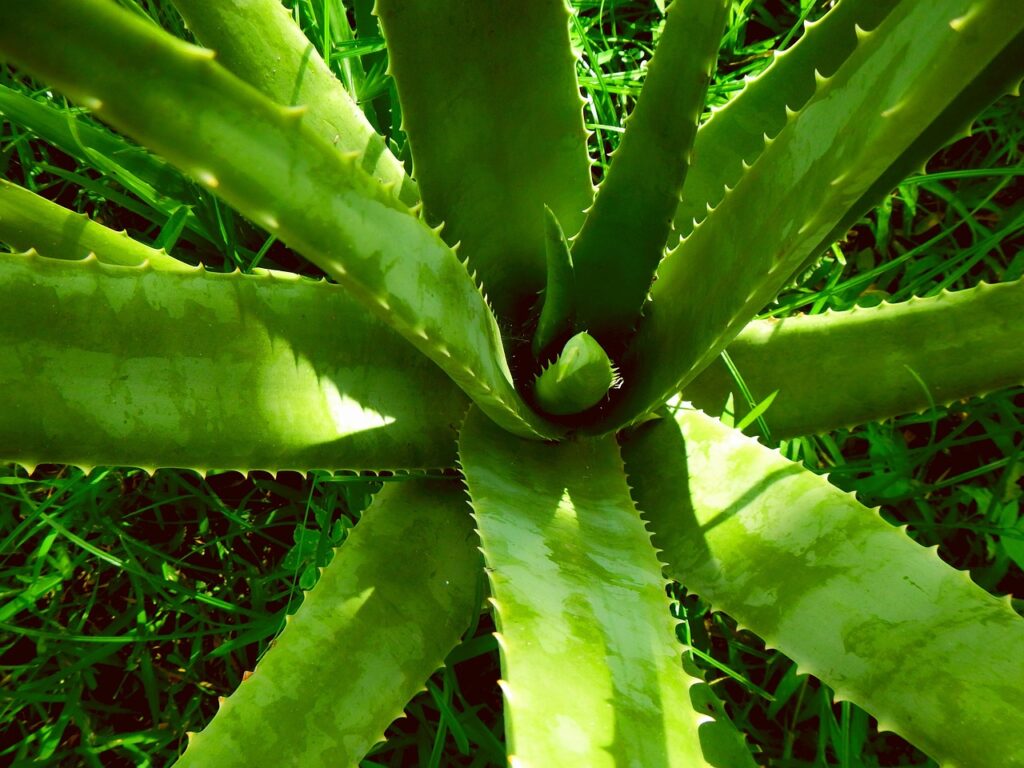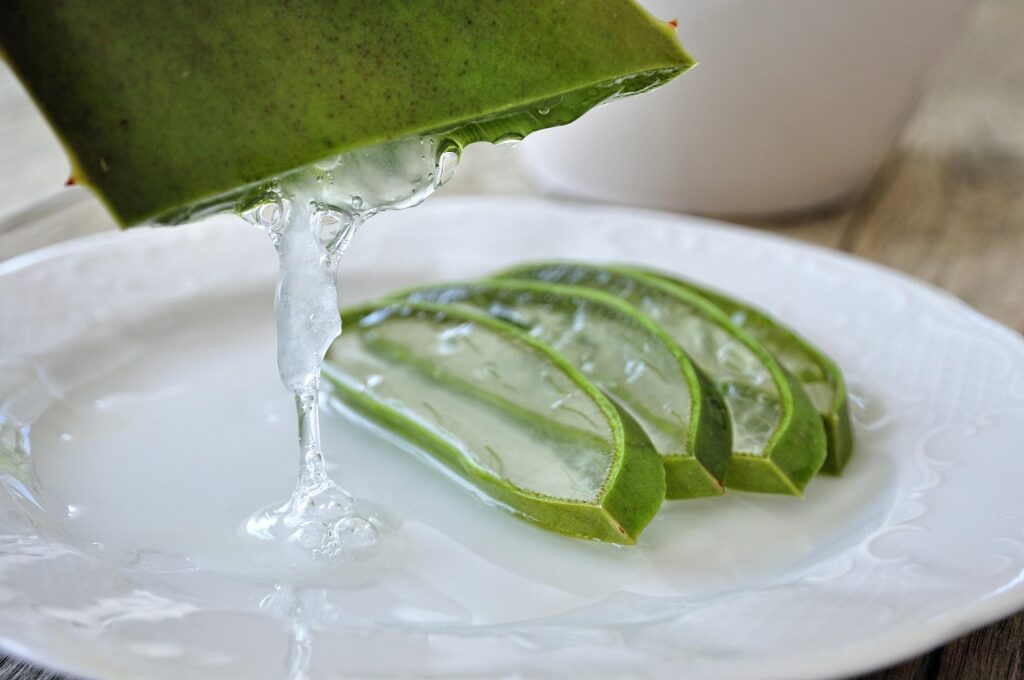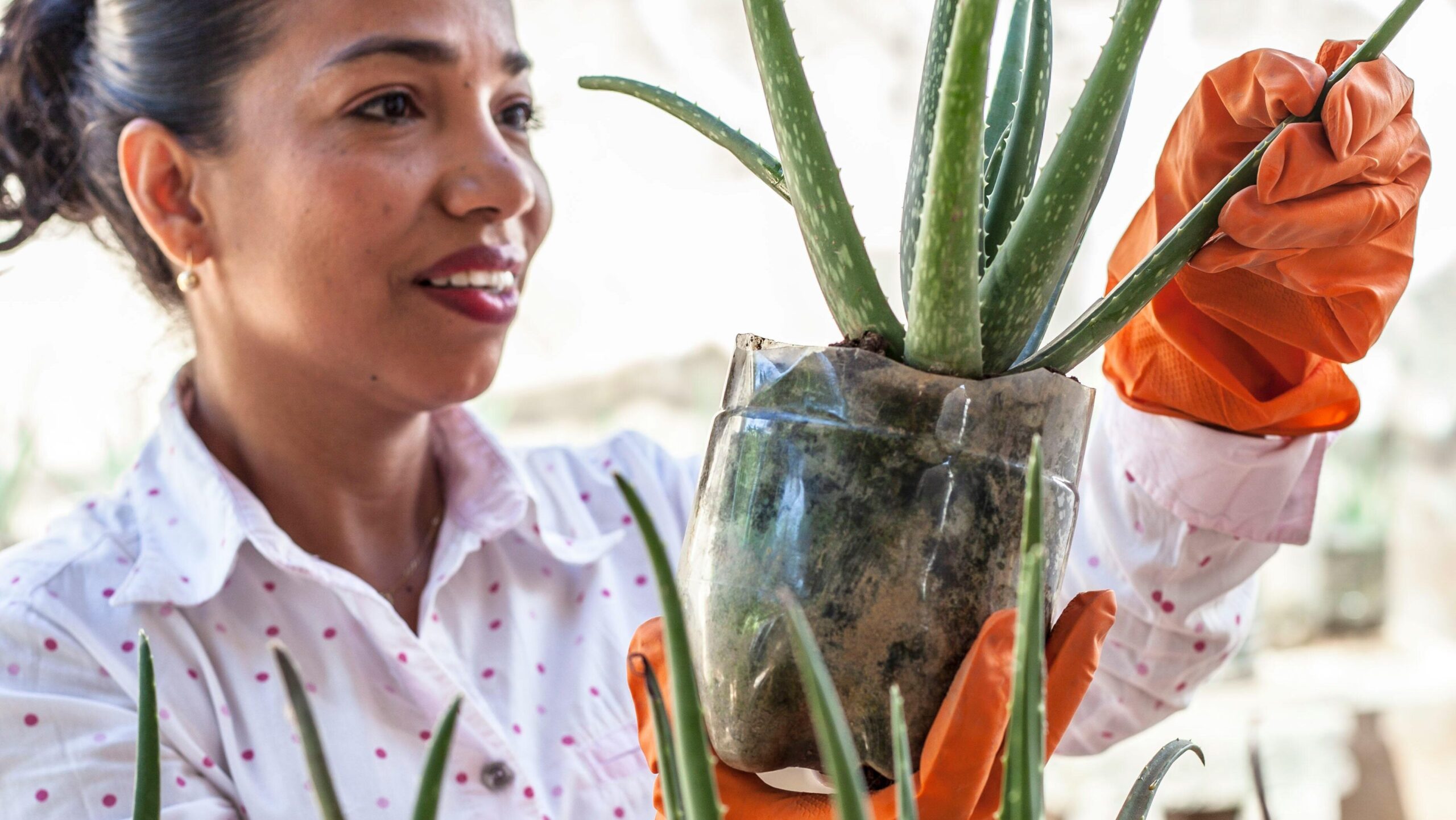
Aloe Vera’s Juicy Elixir for Skin and Gut
Got sunburn or a queasy stomach? Aloe vera, with its juicy, succulent leaves, brings soothing relief. Ancient Egyptians dubbed it the “immortality plant” for its healing powers. From wounds to digestion, this desert gem shines in natural wellness. Let’s explore aloe vera’s science-backed benefits, practical uses, and safety tips, uncovering why it’s a must-have for skin, gut, and overall health.
Soothing Skin and Wounds
Aloe vera is a skin savior. Its cooling gel soothes sunburns, minor burns, and cuts, speeding healing. Studies show it reduces inflammation and promotes skin repair with its anti-inflammatory compounds. Aloe’s antibacterial and antiviral properties help prevent infections in wounds. It also hydrates dry skin, making it a go-to for eczema or psoriasis. Whether you’re healing a scrape or calming a burn, aloe brings fast, natural relief to your skin.
Boosting Gut and Overall Health
Aloe vera goes beyond skin deep. Drinking aloe juice aids digestion by easing constipation and soothing stomach irritation. Its laxative compounds gently relieve bloating and discomfort. Research suggests aloe helps manage blood sugar in diabetes, improving insulin sensitivity. It boosts immunity with antioxidants, protecting your body from stress. Early studies show anticancer potential, with aloe’s compounds slowing tumor growth in lab tests. It also supports heart health by reducing inflammation, making it a versatile wellness ally.

How to Use Aloe Vera
Tap into aloe’s magic easily. Apply fresh gel from cut leaves directly to burns or wounds for instant relief. Use aloe-based creams for daily skin hydration. Drink 1-2 ounces of aloe juice daily for gut health, or blend it into smoothies for a refreshing boost. Look for pure, high-quality juice or supplements to avoid additives. Pair with a balanced diet and hydration to maximize benefits. Start with small amounts to test tolerance.
Safety and Precautions
Aloe vera is generally safe but has risks. Its laxative effect may cause diarrhea or cramps in high doses. Avoid oral aloe if pregnant, as it may trigger contractions. People with kidney issues or on blood thinners should consult a doctor, as aloe can interact with medications. Topical use is safe for most, but test on a small area to check for allergies. Choose trusted, pure products to ensure quality and avoid contaminants.

Why Aloe Vera Matters
Aloe vera blends ancient wisdom with modern science, offering a juicy cure for skin and gut. From soothing burns to easing digestion, this plant sparks wellness naturally. Whether you’re seeking radiant skin or a calmer stomach, aloe is a versatile gem. Use high-quality gels, juices, or creams, and apply mindfully to thrive. Make aloe vera your ally for a healthy, glowing life!
Disclaimer: Always consult a doctor before using herbs for health.
Sources:
National Center for Complementary and Integrative Health (NCCIH). (2020). Aloe Vera. Retrieved from https://www.nccih.nih.gov/health/aloe-vera
Surjushe, A., Vasani, R., & Saple, D. G. (2008). Aloe Vera: A Short Review. Indian Journal of Dermatology, 53(4), 163-166.
Yeh, G. Y., et al. (2003). Systematic Review of Herbs and Dietary Supplements for Glycemic Control in Diabetes. Diabetes Care, 26(4), 1277-1294.
Sánchez, M., et al. (2020). Pharmacological Update Properties of Aloe Vera and its Major Active Constituents. Molecules, 25(6), 1324.
Langmead, L., et al. (2004). Randomized, Double-Blind, Placebo-Controlled Trial of Oral Aloe Vera Gel for Active Ulcerative Colitis. Alimentary Pharmacology & Therapeutics, 19(7), 739-747.
